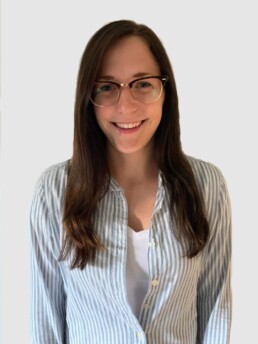Metrics Literacy
Repercussions of Open Access on Research Assessment (ROARA)
The impact of open access policies on academic publishing
Funded by a $2.5 million grant from the Volkswagen Foundation, this project seeks to analyze the publishing market and how publishers' economic interests clash with academic motivations.
Publications are at the heart of scholarly research. They allow researchers to share their findings so others can build on them; they also serve as key metrics in evaluating researchers’ careers. Publishing in prestigious journals can influence funding decisions, promotions, professional recognition and entire careers.
Traditionally, academic publishing was financed through journal subscriptions, primarily paid by university libraries. With the rise of the internet, the vision of free and global access to research gained momentum, leading to widespread calls for Open Access. In response, many funding agencies now require that the research they support be freely available to the public.

The ROARA project will focus its analyses on Germany, Canada, the Netherlands, Colombia, Indonesia and South Africa to provide a diverse and global perspective on the effects of open access policies on the publishing market and research assessment practices.

Commercial publishers have adapted by shifting from paywalled models to open access, often financed via authors publication fees, so-called "article processing charges" (APCs), which often amount to several thousand dollars per article. While this allows broader access to research, it also raises concerns about who can and who cannot afford to publish. Author fees can create barriers for researchers from less-funded institutions, disciplines, or countries, while simultaneously generating substantial profits for publishers—often from public research funds.
Collaborators
Stefanie Haustein, Isabella Peters, Niels Taubert, Kristin Biesenbender, Maria Henkel, Tan Tran, Diego Chavarro, Lisa Matthias, Juan Pablo Alperin, Leigh-Ann Butler, Eric Schares, Marc-André Simard.
All research output of the ROARA project will be made available on Zenodo.
Alyssa Jeffrey
 Alyssa Jeffrey is a first year master's student in the School of Information Studies at the University of Ottawa. She is working for Stefanie Haustein as a research assistant in her work in scholarly communication, bibliometrics, and altmetrics. Alyssa completed her undergraduate degree in English literature and cultural studies with a specialization in film, video, and media. She worked at a public library for two years after her undergrad and enjoyed being able to experience many different aspects of public librarianship including running programs, helping customers with their information needs, and using 3D printing technology. Over the course of her master's degree, Alyssa is excited to explore the many different disciplines that information studies has to offer.
Alyssa Jeffrey is a first year master's student in the School of Information Studies at the University of Ottawa. She is working for Stefanie Haustein as a research assistant in her work in scholarly communication, bibliometrics, and altmetrics. Alyssa completed her undergraduate degree in English literature and cultural studies with a specialization in film, video, and media. She worked at a public library for two years after her undergrad and enjoyed being able to experience many different aspects of public librarianship including running programs, helping customers with their information needs, and using 3D printing technology. Over the course of her master's degree, Alyssa is excited to explore the many different disciplines that information studies has to offer.
Metrics Literacies
Metrics Literacies
Developing online material to develop ‘metrics literacies’—an integrated set of competencies, dispositions and knowledge that empowers individuals to recognize, interpret, critically assess and effectively and ethically use scholarly metrics.
Scholarly metrics, such as the h-index or impact factor, are widely applied in academic tenure and funding decisions, but often inappropriately. The quantification and oversimplification of research impact harms all scholarly disciplines by creating adverse effects, such as self-plagiarism, gratuitous self-citation and honorary authorship. This project aimed to reduce the misuse of metrics and adverse effects by improving understanding and use of scholarly metrics across academia. Specifically, it was looking to support researchers and research administrators in developing metrics literacies—an integrated set of competencies, dispositions and knowledge that empowers individuals to recognize, interpret, critically assess and effectively and ethically use scholarly metrics.

The project has brought together an interdisciplinary team of bibliometricians, science communicators, media producers, and education technology scholars as well as student from film and theatre. Leveraging subject expertise of research evaluators and technical expertise of film producers, Youtubers and podcasters, we produced, tested and disseminated educational videos that explain scholarly metrics in an efficient, effective and engaging manner. Based on Mayer’s cognitive theory of multimedia learning, the resources combined auditory and visual elements to reduce the load for a single channel. The h-index, one of the most popular scholarly metrics, was used as a case study.
Collaborators
Stefanie Haustein, Lauren Maggio, Alyssa Jeffrey, Robin Champieux, Carey Ming-Li Chen, Isabelle Dorsch, Elizabeth Gadd, Marie-Josée Archambault, Peter Musser, Alli Torban, Michelle Riedlinger, Germana Barata, Fiona Smith Hale
All research output of the Metrics Literacies project will be made available on Zenodo.
